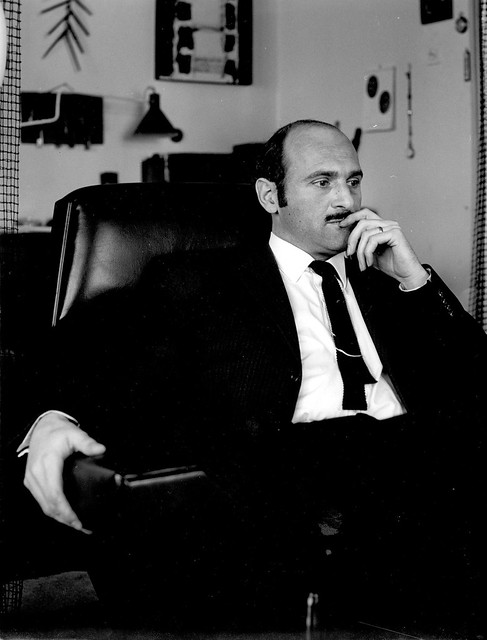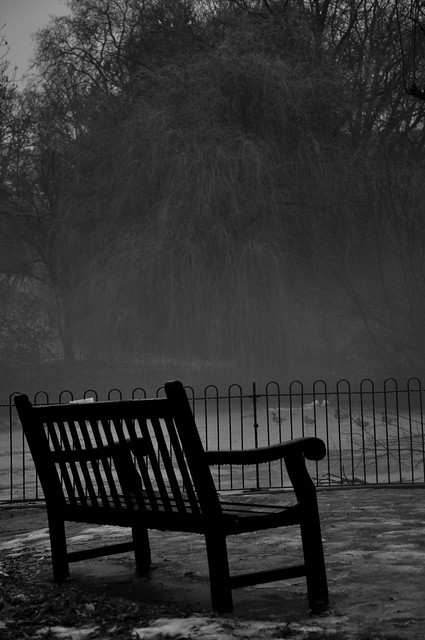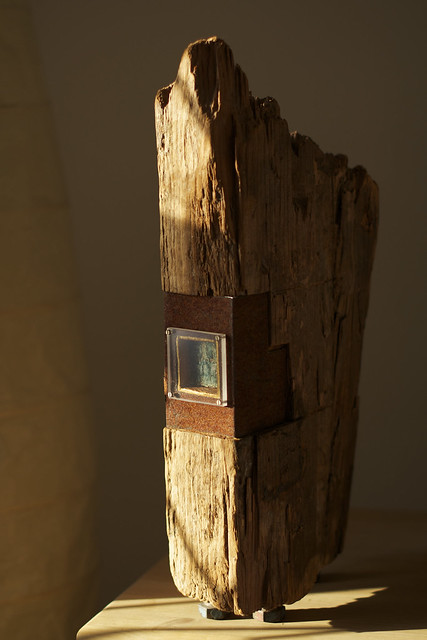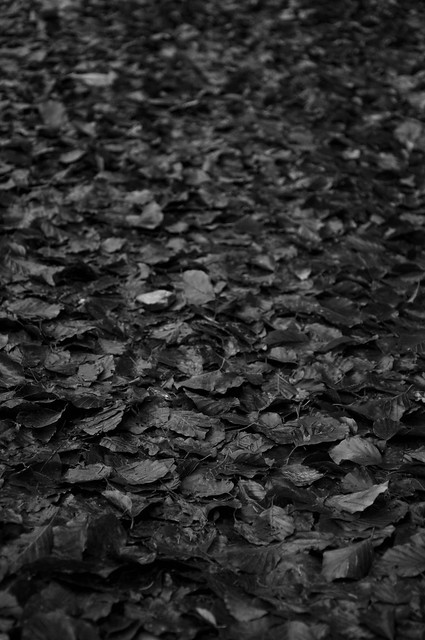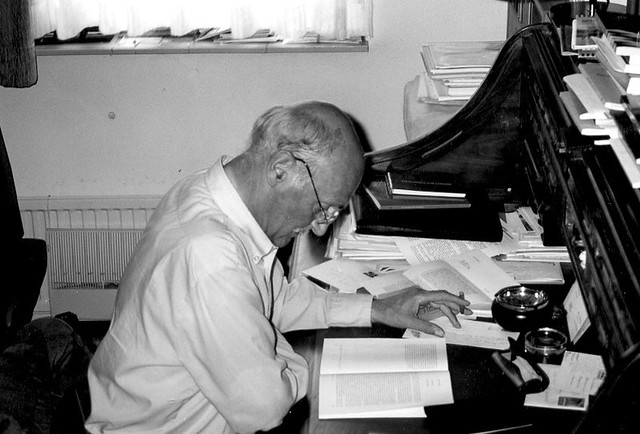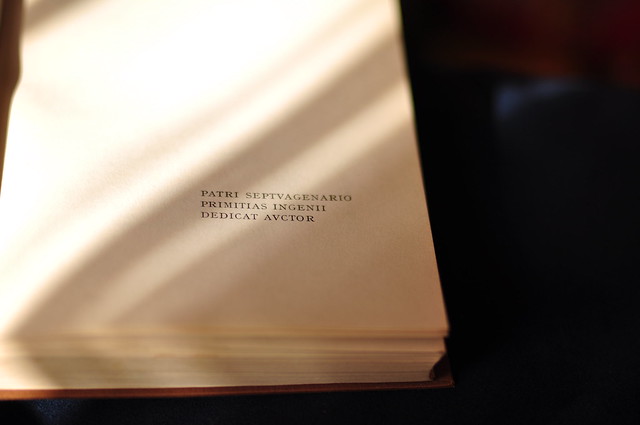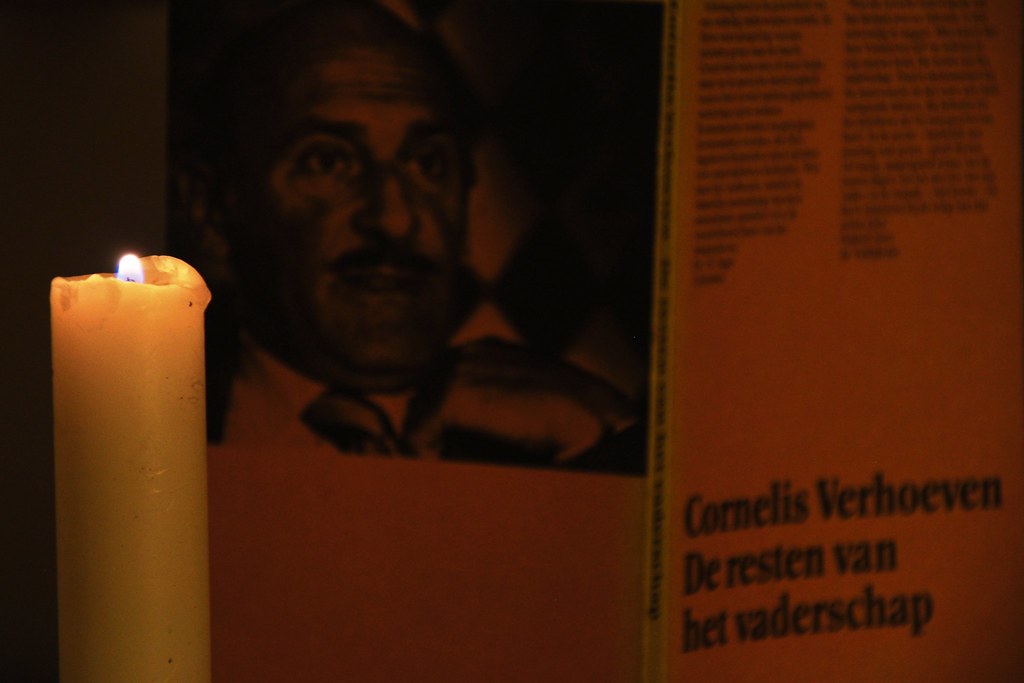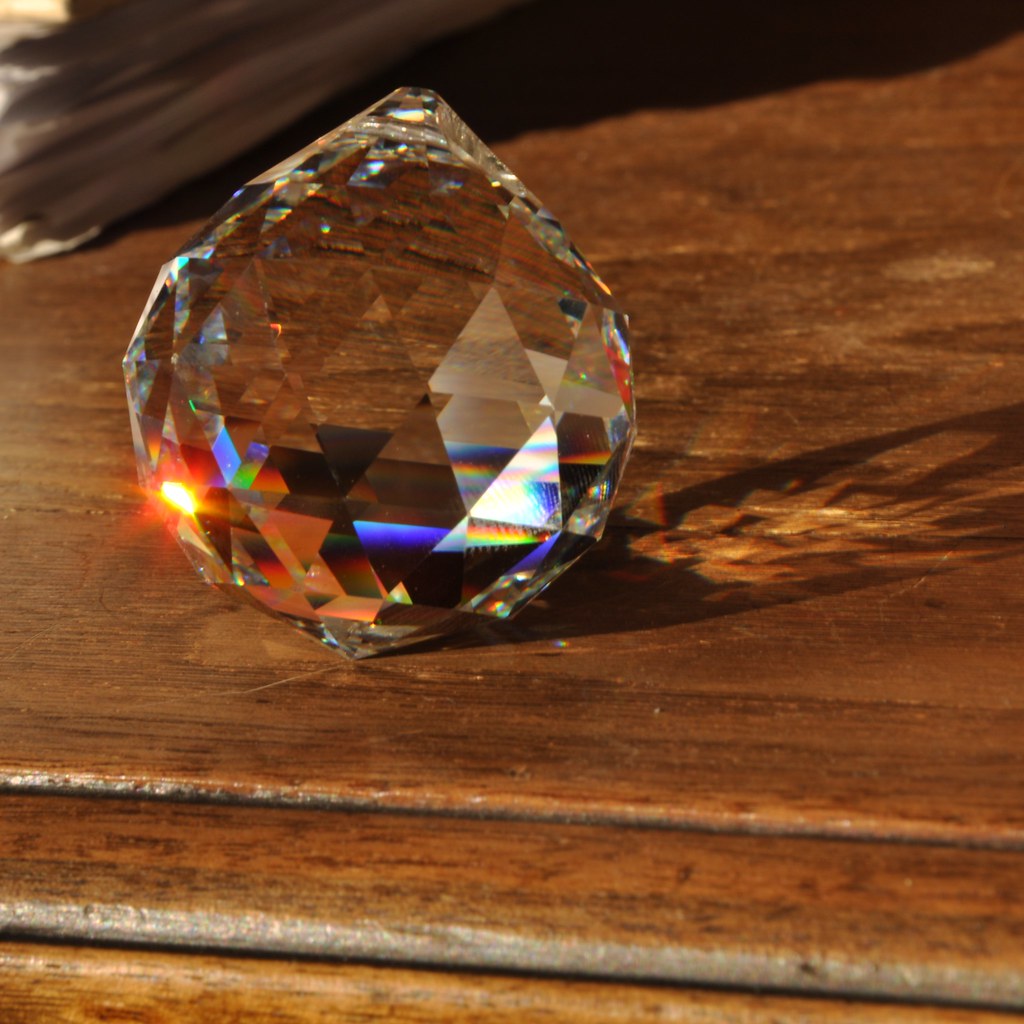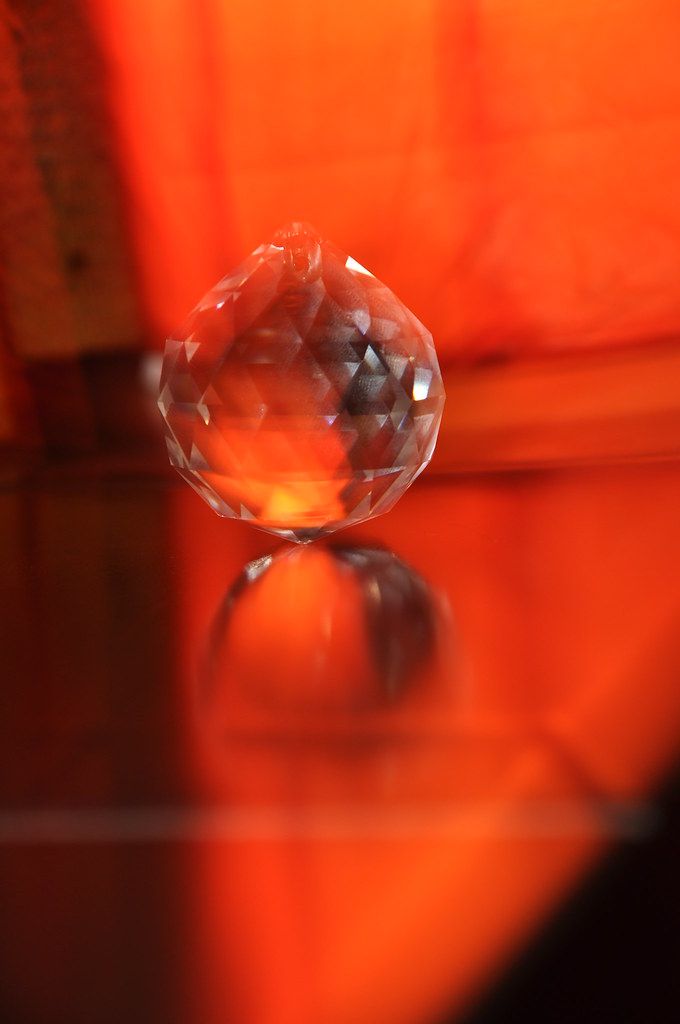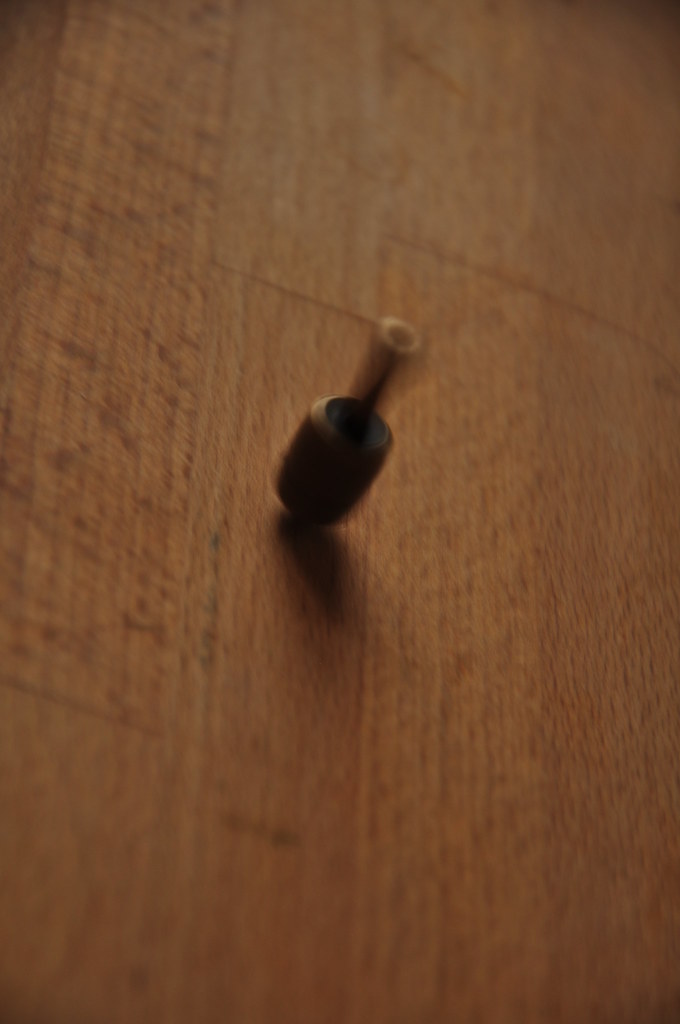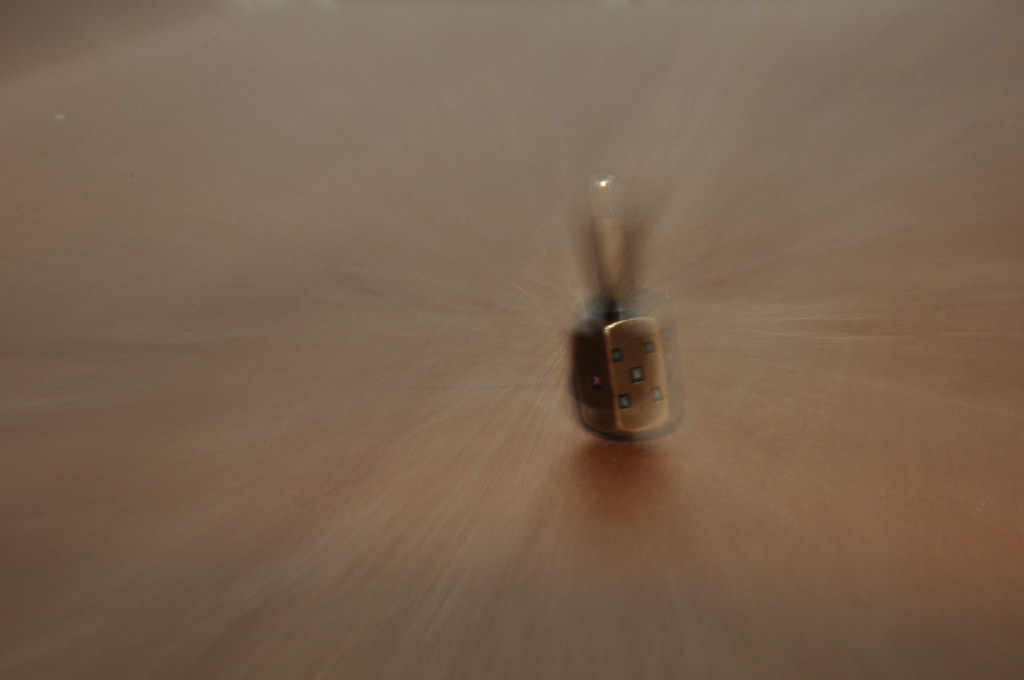My father would have turned 82 today. I would have loved to have seen him at this age, to see him with his grandkids, to hear him bitch about media, to scare him and at the same time make him proud with my strange sport, and to generally have him around.
The essay below is one he wrote in 1974, and its theme is very dear to me. I hope i did it justice in my translation, and i know it's a lot of text, but i was curious to see what that would look like on a page usually filled with photo's. Besides, you can click on the title to get the word document, and if you'd like, you can send me the improved version.
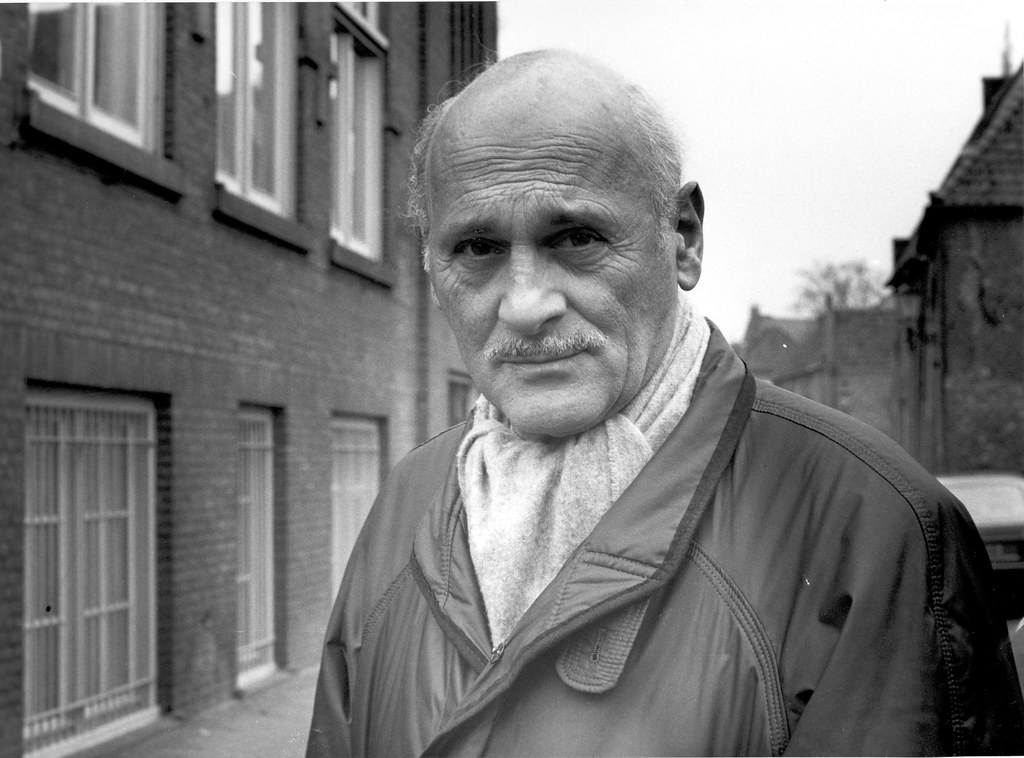
There are in the world a number of things that, in the measure in which they can spontaneously grab our attention, can compete with the most sensational occurrences. A burning fire, a sleeping child, a spinning wheel, rolling waves, streaming water, falling snowflakes and raindrops on a window irresistibly draw our gaze towards them and keep hold of it so long that we forget time. They are movements that invite a passer-by to pause and place him outside of the stream of history for a moment. They completely take hold of us without being in any way sensational.
They only have this in common with sensational occurrences, that at every moment there are changes in the spectacle; but those changes are minimal, random, endless and in no way contribute to a predictable or a tensely awaited end, The happenings that occur don’t add anything to the spectacle and do not change the totality. A maximum of movement coincides with a minimum of change. They occur within a fairly limited frame. The sensation does not lay outside of the spectacle and the tension isn’t caused by the expectation of a shocking occurrence, which will break out of the frame, or a decisive turn in the history of what is happening. Nothing happens, or: the very little that does happen more affirms the status quo than that it creates spectacular changes within it. There is an intense dynamic, but it has its terrain within a frame that seems more static; what happens bends back into a horizon, in which it is no longer a happening, but regular order.
Still these movements interest us no less than an exciting match. This fact in and of itself is wondrous. Apparently the repetition of almost identical movements can be fascinating and in a certain sense spectacular, without any thought of a decision or an end. Spectacular in a literal sense is what is a spectacle en invites us to watch. An classic tragedy was interesting for spectators and compelled them to watch, even though in most cases they knew exactly how the play would end. The tension was created more by a balanced building up than by the question what would happen next.
That causes a thought to rise, that also the tension of a decisive match is determined more by the structure of the happening itself than by perspectives on what will happen next, therefore more by the present and the presence than by the future. The more equal the parties are, the more stringent the rules to which the players must adhere, the more then the forces keep each other in equilibrium and make a surprising result unlikely, the more interesting can the match be and the more the spectacle will tie the spectators to the present. In the same way the back and forth movements start to resemble more the rolling of the waves and the flickering of a flame within a balanced frame. The tension of a match is decided by the repose of the decision and repose means: absence at this moment. The moment itself is being occupied by different thoughts, it fills itself with the lyrical presence with an endless movement. To watch is only to be witness, gazing at what happens over there, in the water, in the fire, or on the field. New flames shoot up, new waves roll in, new resistance delays the victory.
These things appear so different, that it seems nonsense to join them. That this happens anyway has a meaning. For with all too much fervor staring into the fire or water is labeled as a somewhat introverted musing, while watching a game is seen as stout, extraverted engagement with brave deeds and perhaps also as a preschool of the willingness of actually participating in those activities. This way of seeing things can be questioned , which will immediately relate to other discrepancies that are taken for granted, such as between activity and passivity, the outside world and the inside world, doing and thinking, labor and leisure.
Whoever stares into the fire or gets enthralled by the endless roughing of the waves more easily gives off the impression to be lost within his own thoughts than the spectator at a match. It is likely that this is caused less by a deep difference in the symbolical meaning of the movement towards which the attention is geared, than by the circumstance that at a competition, a spectator is not alone, but amidst a large mass, that with loud yells encourages the competing parties in the hope to influence the outcome with it. That can provide the illusion of activity. But when the supporters are as equally divided as the players, in the incoming waves of encouragements too a balance will arise. In this case, nonetheless, it is clear that the centre of attention is outside of us, there on the field.
But also when we are musingly staring into the fire or being enthralled by streaming water, we don’t think of ourselves. We think of nothing, or of something that is too large to think about it in detail. Thought seems to stand still in wonder of something that it can’t comprehend. Maybe the movement of fire, water and breath is so fascinating, because for us it is a symbol for the restlessness of our own inner being, but it exudes calm, because it exists clearly and undoubtedly outside of us. Attention for that movement frees us from ourselves and directs itself to an outside world, which engrosses us by its own qualities.
There are not so many things which can, in this way, without the promise of a decisive outcome, fascinate us and rip us away from our own centre. We could say, that it concerns elemental things. In the elements a number of characteristics are present in a focused way, that keep being of interest to us: omnipresence, eternal returning, recovery of balance, irreplaceability, concreteness, in short everything that makes them suitable to be the carriers of endless symbolism. Elements make us spectators. We pause by them and wonder about their pure presence. For a moment the matter-of-factness of an outside world made manageable falls away and we focus out attention on a secret. Musings near the fire, water and other elements don’t let us sink into the own inner self, rather than that it places us with a soft shock in the outside world, of which we –until now perhaps thoughtless users- suddenly become surprised witnesses.
By speaking of elements we don’t exactly bring the secret of the world within our own reach, but we acknowledge that for the time being it is outside of this reach and cannot be reduced to a function of our own power. The word is an attempt to indicate within the multifaceted reality a structure or a skeleton, or rather: to verbalize a suspicion of a structure. ‘Elementa’ –a word with an obscure origin- was used by the Romans to denote the letters of the alphabet made out of ivory, and later also the raw materials, of which the world in the antique’s point of view was composed. Elements, letters are not the literature, materials are not the world. The word ‘element’ is no more that a coat rack for our willingness to penetrate deeper into the world, a temporal but un-omitable repose for our wonder. The inexplicable word explains nothing; it only says that man, faced with an interminable multitude, wants to bring order to it so not to be perplexed forever.
Earth, water, air and fire, ranked according to density and mass, were in the minds of the Presocratics thought of as raw materials, from which the visible world was build and to which all matter could be reduced. Elements are at the beginning and end of everything; they survive the fortunes of what is build up out of them. Between arising and perishing a whole history occurs, in which the elements get mixed in the most diverse ways and form complex structures. The way up goes in reverse order through the same stages as the way down.
This whole symbolism seems to deduce to a great wonder about the elements, but it represents at the same time a certain phase in the history of attempts to articulate this wonder and make it into an instrument. The thinking of the Presocratics has beaten the myth, in which elements and forces of nature were represented as gods. It is a decisive step in the history of the human emancipation to from now on give a god or nymph the name ‘water’ or ‘earth’. This secularization brings the manageability of the world closer. Earth, water, air and fire are no longer only being worshiped, like Demeter, Poseidon, Zeus and Hephaestus, but also principally engaged in human activity. Gods are outside of that. They diverge to an invisible world, where they cannot be reached. The classic school of elements has maintained its validity for so many centuries, because it functioned as an attempt to replace the focal point of an explanation of the material world from outside that world to within it, and to make its substance accessible for human efforts.
Wonder brings things closer. It does invite us to pause and to postpone immediate action, but we pause ‘at’: the strangeness is discovered in our own surroundings, like an element beneath our feet, before our eyes and in our hands. The process of demystification and rationalizing, which started with the Presocratics, does not get stuck in introverted musings, but becomes the technical manageability of things. Rationalizing appears to be for a large part operationalizing; we have learned to connect the measure in which we understand and can explain something, to the measure in which we master it technically.
One of the Presocratics, Thales of Miletus (640 – 550) thought of water as the most important element. ‘All is water’, he said, but also accredited to him is the maxim ‘all is full of gods’. There are anecdotes about his life that illustrate his absent-mindedness, and others that must prove, how sober and practical this ancient engineer was in several fields: astronomy, economics and hydraulics. He predicted a solar eclipse and a bad wine harvest and was able to make a profit from this knowledge. He cut off a bend in a river to let an army go through. His dream of the all-explaining water apparently went alongside a practical mastery of this element. When everything is water, everything has to be predictable and manageable according to the laws of water; but when everything at the same time is also full of gods, the wonder about this primal element will never find a definitive way out to a complete technical submission or a total self-evidence.
Elements remain things that we pause at. That means in the first place, that they grab our interest and incite our wonder. A meeting with the elements perplexes us and makes us contemplative. Pausing means furthermore, that we for some time halt our activities and our urge to intervene. ‘Elementary’ we call those things, that by their own quality ask for our respect. It is not without reason that they were once represented as untouchable gods. An element is that which resists further treatment, what must be left to its own wisdom and structure and cannot with impunity be subjected to our capriciousness.
Also in that sense water is an element at which we have to pause; it makes us hesitate. Historically that hesitation can be interpreted as a certain conservatism in dealing with the elements. From Thales till the eighteenth century not much has changed therein. The classic symbolism of water does not end with the classics, but also outside of the classical culture has a historical validity and exemplary worth. The attention water as element asks and the respect it demands, are determined by the convincing way in which it manifests itself as an independent world and an impressive force.
In musing about water the mind experiences the human powerlessness against elemental occurrences. Elementary is what refutes the illusion of human omnipotence with its own manifestation. The wonder about water is a realization of the limits that come with the manageability of the elements, and of the multiple uses it has within those limits.
Translate din terms of technology this wonder means a focused attention for the particularities of the element and is respect: the willingness to obey the elements own laws when using it. ‘Nature can only be beaten by obeying it’, Francis Bacon wrote in a time in which the immerging sciences could not yet dream of replacing nature. The discovery of systematic laws is an invitation to obey them and to consult with the matter. The ‘soft technology’ is determined in this consultation and is besides some human cleverness also a tribute to the elements. In ancient times this respect had taken the shape of a cult.
The ancient technology of sailing, to name one example, does not only let be the divine power of water, but seems to be imbedded in expressions of pious reverie for the powers that control water. Sailing has never been taken for granted. It always coincided with the feeling, that something daring was undertaken, not only in relation to one’s own life and personal safety, but also in the sense that it remained an expression of over-confidence against an element, that invites us to pause and limits the human expansion.
In the first century before Christ, Horace says after quite an innocent sea trip to Greece, that the human species, cheeky enough to endeavor anything, is plummeting itself into a prohibited venture by going to sea. Mortals have mastered air and fire and also for water they won’t stop. ‘In vain God has in his wisdom separated the lands by the ocean as a border, when the godforsaken ships still dare to jump over waters that should have been unapproachable.’ If we weight this maxim without poetical exaggeration and a conservative pathos, then still remains a starting point, with which contemporaries could agree: the wariness for the sacredness of the elements.
Water is a force that needs to be reconciled with this way of exploitation. ‘Sailing is necessary’, but it needs to continually be paired with excuses to the forces, like the primitive hunt too and the rituals of hunters are not without a salute to the wild animals. Libations were poured out and prayers directed to the winds. Without their benevolent cooperation the bold technological undertaking of seafaring would be doomed to failure. With all his haughtiness and power man still is dependent on the elements. According to an ancient legend the Persian king Xerxes, driven by a very high esteem of his own power, but also conceding to the coercion of an archaic representation, had the Hellespont tortured, when a storm there had destroyed his ship bridge and his plans had fallen into water.
The symbolism of the holey water is as complicated as the element is all around. In it, the violence of the waves has a place together with the depth of the sea, the clarity of the lake, the squishiness of the puddle, the velocity of a mountain creek and the innocence of the source. Water is a living element. When Thales said that everything is water, he must have thought about living creatures in the first place. In the ancient symbolism water is the element that brings forth and renews life. Life is a gift from water. Living water means new life and a renewal of the old life.
The ritual use of water is steeped in the same respect for the element as its technical exploitation. The ritual washing in living water is more an invitation to symbolical thinking about the element than an effective cleansing. The ritual cleansing activates the symbolism of the stream that passes and carries away. The cleansing water, according to this symbolical way of thinking, takes with it all that is alien to the one being submerged into it; it gives him back his proper and undivided identity, the one he had before he got smudged by history. As an element water makes a fertile connection with the primal time and the beginning. ‘All is water’ can, except for that everything arose from water, also mean that everything can be renewed by the element that represents the primal time and with it the model with which everything should be measured. Washing is, like many old rituals, an attempt to wipe away the accretions and the alienation of history and to connect with the pure beginning. In the depth of water history is broken down and the innocence of the prehistoric times repaired.
It probably is a too romantic illusion to think that in a technological age this archaic symbolism of water still has any serious and practical meaning. The question is, how seriously it was taken in old times, so before the time that a romantic interpretation had laid itself like a second skin over the symbols. When we can speak about something like a ‘lost identity’, it cannot be repaired through a symbolic way. It is doubtable, if this was literally the meaning of the ancient rituals, and even if such terms were even conceivable in an archaic context. Maybe there is more of a homage to the elements than a searching for the own identity. Unmaking history in a symbolical way isn’t necessarily an expression of an irrational desire to start anew and to give up the achievements of reason. The gesture can also be seen as a re-evaluating of human actions by the laws of the elements.
The ancient rituals can be interpreted as a constant precaution to, as the Stoic philosophers would say, live in accordance with nature, in harmony with and parallel to the seasons, the movements of celestial bodies and the elements. The rhythm of life in this symbolism isn’t determined by a self-powered decision of man, who regards himself as the centre of the universe, but in dialogue with a rhythm outside of him. The world does not revolve around man, but man is a late-comer in an already revolving world and needs to adjust to its rhythm and laws to maintain himself. He is more the witness and careful inhabitant of the world than a master of it.
The ritual cleansing with living water fits in the same frame as the careful consulting of the phase of the moon and the stars in agricultural and nautical enterprises of decisive importance, as the studying of the flight of birds or listening to the predicting rustle in the tops of trees. This whole technology of cautiousness, embedded in a contemplative stance in the world, represents a respect for the elements, that in later times was perhaps neglected too much for the benefit of a maximum of exploitation, which more and more took on a character of overtaxing. The way in which in our youngest past streaming water is used as a self-transporting sewer, in hindsight bares all the characteristics of what was considered recklessness in ancient times.
An example of that is told by Ovid in his playful frame tales surrounding the mythical metamorphoses, in which water plays a strikingly large part as a medium of transformation. When the goddess Latona, floating over the earth with her two children in search of a cool drink had arrived at a clear lake, she wanted to scoop the water with her hand. But the Lycian country-folk, who were working in the vicinity, prevented the goddess from quenching her thirst. ‘One sip of water would be as nectar to me, and I will feel, that with it I’ve been given life again’, she assured them. But without hearing the warning nestled within the word ‘nectar’ –an indication, that the woman knew this drink of the gods by experience- and from the consideration that the elements could be no one’s personal property (usus communis aquarum est –water is for common use) the herders kept the goddess away from the water. They even jumped into the lake to muddy the water with their stamping feet and make it undrinkable. As a punishment for that, the goddess turned them into frogs, sentenced to forever flounder in brackish water and quack without being understood.
The temptation is great to use this story as an instructive fable on modern relationships, and point out spiteful Lycians in our own environment, that muddy the elements. The question has been talked about often and there’s no shortage of accusatory pointed fingers. But whoever should be transformed into a frog, it is clear, that the symbolism of water, which until recently had a distinctly poetic character, has in the last few years undergone a thorough change. No natural disaster has caused that, nor a sudden change in symbolical thinking, but human neglect in regards to the side-effects of a somewhat too hasty and messy technological development. Streams of water no longer seem to be the source and image of life, but of death, not of cleansing, but of decay. The clear beginning phase has become a brackish end stage. Instead of an element, water threatens to become a waste-product with the fortunate characteristic, that it takes care of its own transportation. A communal property degenerates into a public sewer. The friendly babbling brook of yesteryear flees the scene ashamed and bubbling with poison. The nymphs that gracefully danced on the shores have changed into wrinkly furies with snake-hair; drooling slime and venom they preach death and destruction.
Still, the attention for elements has not disappeared in a technological age. That is only in a very little part the merit of man. What is elemental will maintain itself through the entire history. If it is forgotten, it will return and present itself again. The historical, history-making man can only separate himself from the elements a couple of steps. When he goes too far, he lapses into an uninhabitable artificiality and he will be haunted by his furies. The history of technology is a continuous, haughty experiment with the length of that distance. Water too is involved in it and it’s been made mostly subordinate to technology and the will to reduce the world and the elements to means. But the archaic, cautious dealing with the element has as it were spliced off the technological existence and taken a place in a ‘second life’, that hasn’t been caricaturized by our will, namely recreation. What water was in ancient cleansing rituals, it has become again in the modern way of spending time off: a recreating, recreative element. In the time in which we relax, we can afford a pace of life, in which elemental things get a place they’re more entitled to. The tension of a match is part of it, but also the disinterested interest in movements that do not lead to anything spectacular, but only invite us to contemplate.
The place that water takes in recreation, is a sign of its elemental indispensability. Elements cannot be passed by in history. If they are passed over, history has evaporated into poisonous clouds. When they are driven out of technology and economy, they’ll return in luxury, like for example the fire place or in the alternative life of time off, and give those more content. The further we are separated in our ‘first life’ from the elements, the greater is our need for recreation. In recreation the technological alienation from the elements is being undone and on a small scale the history of the human position to water repeats: the surprised contemplation of the element, the battle against the waves and the wind, waged with the most primitive of means, the relaxed succumbing to their overpower and the endless, goalless drifting on the back of the water. In this recreational match the means are reduced to the elemental.
Psychologists might be a bit too quick in talking about a ‘regressus in uterum’ and a drifting on the amniotic fluid. But when we emphasize the elemental character of water, by this interpretation man again seems to become the centre of the contemplation too much. That water is an element means that man could attribute an endless amount of meanings to it, but only based on the fact, that the water itself is the centre, and not subjected to an ‘egotrip’. It’s not man that makes water, it’s water that makes man and invites him to contemplation. Drifting on water, listening to the waves or with his eyes following the stream he is confronted with something that in force and duration surpasses his own existence and on which he depends.
In a country mostly situated below sea-level, the inhabitants won’t easily be reduced to an unpractical and all too poetic idealization of water. A land that has been wrestled free from the billows must in a way view this element as its arch enemy and a constant threat. Dealing with water there has the character of a permanent, heroic battle. Even the meaning of the word ‘element’, especially in plural, is colored by it. Whatever there is of poetry in the symbolism of water continually gets crossed by a wakeful sobriety. A perfected hydraulic engineering technology is an expression of that. Knowledge, power and money concentrate themselves around the battle with an enemy, who only when subdued can become a means of transport and the subject of content contemplation.
In ancient Egypt, where the yearly flooding of the Nile demanded the mobilization of all forces to make a maximum profit of the fertilizing element, already thousands of years before our calendar the Farao’s dyke-graves grew. Thanks to their power Egypt could become ‘a gift of the Nile’, as Herodotus calls it. The enemy becomes a friend, if he is controlled with his own laws. In a country like ours the poetry of water and the recreational enjoyment of it presupposes an intense technological control of the element. That does not make the poetry and joy smaller, but adds to it the element of intense satisfaction.














